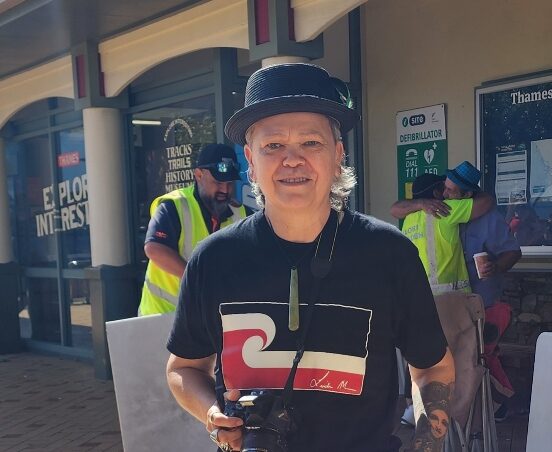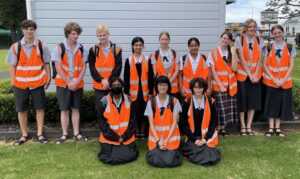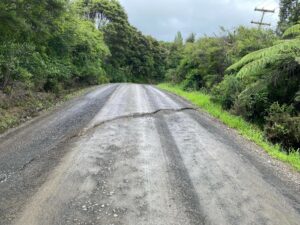Thames-based Māori advocate and researcher Paora Moyle has been named a recipient of The King’s Service Order on the New Year’s Honours List for 2025.
Paora was nationally recognised for services to survivors of abuse in care. It has been 28 years in the making.
“It was 1997 when I first started to lobby the State to provide better care for tamariki, who are taken from their whānau and put with faith or State-based organisations,” she said.
After being notified about the tohu for tireless advocacy for survivors of abuse in care, she paused to reflect on the long and often painful road that led to this moment.
Her journey began not with public recognition but with a deeply personal mission: researching and writing up a report that would forever change her life.
“It was a whakapapa study to help locate my whānau and myself.”
The task was as monumental as it was essential, Paora said.
She and her siblings had been separated when they were very young, taken into State care and cut off from their ancestral ties.
“Of course, we didn’t know what whakapapa was or anything,” she recalled.
“But we told stories to one another, stories of the feeling of belonging to something greater.”
Those stories sustained them, planting the seed for her later work. The whakapapa study wasn’t just about tracing lineage; it was about reclaiming identity, restoring connections, and finding a place within the larger story of her people.
“Learning about my tipuna – who they were, where they came from, and how they lived – is a profoundly powerful experience. Understanding their stories, their love, and the care they showed for one another has given me a deeper sense of what whānau truly means.”

Over the years, Paora’s work has evolved. What started as a personal journey became a mission to support others who had suffered in care, helping them find their voices, their histories, and their strength.
“When I first started this work, I didn’t fully know what I was doing – I was just young and driven by the passion of knowing that what happened to me and my younger siblings was wrong. With no parents to stand up for me, I decided to stand up for myself,” she said.
“In our case, the State failed as a parent, yet unlike families who are held accountable when they fail, the State excuses itself. The Royal Commission’s final report has shown that thousands were harmed, not just by isolated mistakes but by systemic failures.
“Millions have been quietly paid out to silence victims, but we refuse to let this be swept under the rug. Our fight continues to ensure this never happens again.”
It was her life’s work, Paora said.
“I’ve poured my heart into protecting tamariki from the harm caused by being uprooted from everything they know and love. Removing a child from their whakapapa and whenua severs their wairua, their connection to the land and their spiritual guardianship. The harm isn’t just mental; it’s deeply intrinsic.”
For her this is more than an achievement – it’s a PhD in resilience and advocacy.
“I’m not a person that likes to be out front unless I‘ve got something important to say on behalf of our whānau. Focusing on their well-being by elevating their voice in the community has always come first.”
In addition to research, over the years Paora has lectured and designed social work programmes to educate social workers working with whānau.
Her son’s pride reflects the profound impact of breaking barriers and being recognised for an extraordinary contribution in the lives of thousands impacted by abuse in State care.
“When I told my son about the award, he couldn’t believe it,” Paora said.
“He said, you’re kidding me, Mum. Is this really real? As far as I know, no one in our whānau has ever received anything like this. We’re common folk; we do common work. We’re labour class. We just don’t get recognised like that.
“He’s absolutely thrilled – over the moon, really. He thinks his Mum’s a queen and said he wants to walk me down the aisle when I receive it.”




